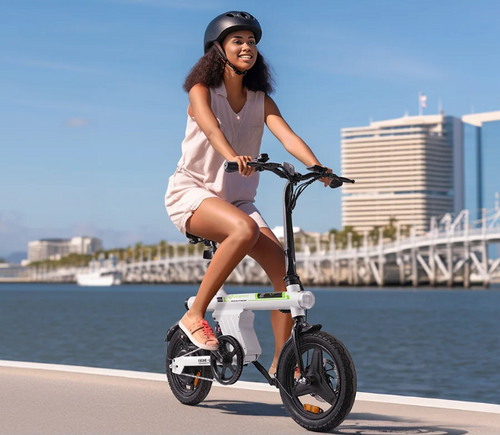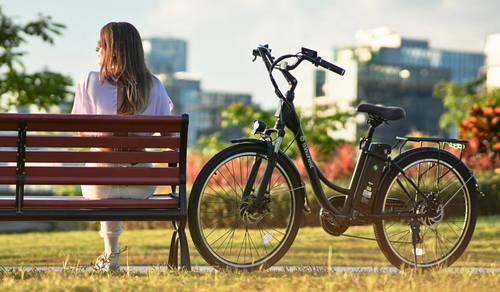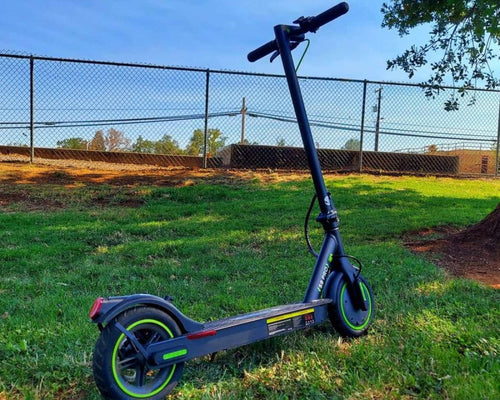
How Much Does it Cost to Charge an Electric Bike Battery?
Electric bikes are becoming one of the most popular ways to travel — combining convenience, performance, and eco-friendliness. But one question that almost every new e-bike owner asks is: how much does it cost to charge an electric bike battery?
The answer is surprisingly good news for your wallet. Compared to cars, motorcycles, or even public transport, e-bikes are incredibly cheap to run. The cost to charge an electric bike battery depends on its size and your local electricity rate — but in most cases, it’s just a few pennies per charge.
How Much Does it Cost to Charge an Electric Bike Battery?
In the UK, the cost of charging an electric bike battery is very low — typically just a few pence per full charge. Based on current electricity prices (around £0.25–£0.30 per kWh), fully charging a 500 Wh (0.5 kWh) battery costs about £0.13, or roughly 13 pence. Even if you charged your e-bike every day, your monthly electricity bill would only increase by a few pounds, making it extremely affordable.
Most e-bike batteries range from 300 Wh to 700 Wh in capacity. For example, a smaller 300 Wh battery costs about 8–10 pence per full charge, while a larger 720 Wh battery costs around 18–20 pence at a rate of 25 p/kWh. The total cost depends directly on the battery’s capacity and your electricity rate — even for high-capacity batteries, the cost remains very low.
The calculation is simple. First, check your battery capacity (Wh). If it’s listed as voltage and current (e.g., 48 V × 10 Ah), multiply them to get watt-hours (480 Wh). Then convert that to kilowatt-hours by dividing by 1,000, and multiply by your electricity price. For example:
0.5 kWh × £0.25 = £0.125 (about 12.5 pence).
Considering charger inefficiency (around 10%–25% energy loss), the real cost might be slightly higher, but the difference is minimal.
If you use a night-time or “off-peak” tariff (some providers offer rates as low as 8.5 p/kWh), charging costs can be even lower. For regular riders, the energy cost of an e-bike is negligible compared to the fuel expenses of a car or motorcycle.
Overall, charging an electric bike in the UK typically costs between 10 pence and 25 pence per full charge. Whether you ride daily or occasionally, an e-bike remains one of the most economical, eco-friendly, and efficient modes of transport.
Tips on Charging Electric Bike Efficiently
Proper charging habits can dramatically extend the lifespan of your e-bike battery while keeping energy consumption minimal. Here are five of the best tips for efficient e-bike charging:
1. Avoid Full Discharges
Charge your battery when it drops to around 30% instead of waiting until it’s completely empty. Fully draining the battery puts extra strain on the cells, reducing their ability to hold a charge over time. Keeping your battery partially charged helps maintain optimal health and ensures consistent performance during rides.
2. Unplug After a Full Charge
Even though most modern chargers automatically stop once the battery reaches 100%, unplugging it soon after helps prevent trickle charging and excess heat buildup. Leaving the charger connected for long periods can slowly degrade the battery cells. Make it a habit to disconnect after charging — ideally before storing the bike for extended periods.
3. Charge at Room Temperature
Keep charging conditions between 10°C and 25°C. Extreme heat or cold can negatively affect your battery’s lifespan and efficiency.
4. Use the Original Charger
Always use the manufacturer’s charger. Third-party options may not match your battery’s voltage or current requirements and could lead to damage.
5. Store Partially Charged
If you won’t be riding for a while, store the battery at about 50–60% charge. This helps preserve its capacity and prevents cell degradation over time.
How Long Does it Take to Charge an E-Bike Battery?
Charging times vary based on the battery capacity and charger speed. Most standard e-bike chargers operate between 2A and 4A, and the charging process typically takes between 3 and 7 hours. For example, a 300–400Wh battery usually takes 2.5 to 4 hours to charge, a 500–600Wh battery takes around 4 to 6 hours, and a 700–900Wh battery can take up to 6 or 7 hours. Fast chargers can reduce this time significantly — a 4A charger can recharge a 600Wh battery in about 3 hours. It’s best to charge your e-bike overnight or during downtime, as modern chargers have automatic shut-off features that stop the current once the battery is full, preventing overcharging or damage.
How Often Do You Need to Charge an E-Bike?
How often you need to charge your e-bike depends on your riding distance, style, and the level of pedal assist you use. If you usually take short trips, you might only need to charge every few days. However, for longer commutes or frequent rides with higher assist levels, daily charging may be necessary. It’s best to recharge when your battery reaches around 30%, rather than letting it fully drain, as lithium-ion batteries last longer when not completely depleted. Most e-bikes have a display showing your battery percentage and estimated range, making it easier to plan your rides and avoid running out of power mid-trip.
Here’s a simple guideline:
-
Short-distance riders (10–15 miles/day): Charge every 2–3 days
-
Moderate riders: Charge every other day
-
Heavy users: Charge after every long ride
How Long Does a Typical E-Bike Battery Last?
An electric bike battery’s lifespan depends on how often you charge it, riding habits, and proper maintenance. On average, a quality e-bike battery lasts 3 to 5 years, or around 500 to 1,000 full charge cycles. To extend your electric bike battery life and reduce how much it costs to charge an electric bike battery, keep it between 20% and 80% charge, store it in a cool, dry place, and avoid frequent use of high-assist modes. Always use the original charger to prevent damage. When capacity eventually drops, replacing the battery — usually costing £200 to £500 — can restore your e-bike’s performance and range.
Cost Effective and Fast Charging Electric Bike Models
If you’re looking for the perfect balance between affordability, performance, and quick charging, the following isinwheel electric bike models stand out. Each offers efficient power delivery, solid range, and reliable battery performance — making them excellent choices for both daily commuting and weekend rides.
|
Images |
 |
 |
 |
 |
 |
 |
|
Models |
||||||
|
Peak Power |
500W |
500W |
500W |
500W |
500W |
750W (250W nominal) |
|
Battery |
36V 7.8Ah |
36V 13Ah |
36V 7.8Ah |
36V 10.4Ah |
36V 10.4Ah |
36V 10.4Ah |
|
Max Range |
28 miles |
65 miles |
35 miles |
60 miles |
55 miles |
55 miles |
|
Speed (before unlock) |
10/15/25 km/h |
6/10/15/20/25 km/h |
10/15/25 km/h |
6/10/15/20/25 km/h |
10/15/25 km/h |
6/10/15/20/25 km/h |
|
Speed (after unlock) |
15/25/32 km/h |
10/15/20/25/32 km/h |
15/25/30 km/h |
6/10/15/20/35 km/h |
15/25/35 km/h |
10/15/20/25/32 km/h |
|
Max Load |
120 kg |
120 kg |
120 kg |
150 kg |
120 kg |
120 kg |
|
Net Weight |
23.2 kg |
27 kg |
23.3 kg |
21.9 kg |
26.5 kg |
28.4 kg |
|
Suspension |
Rear mid shock absorber |
Front suspension |
Adjustable front fork + comfort saddle |
Hydraulic fork |
Front suspension |
Aluminum front fork |
|
Max Climb |
20% |
37% |
25% |
20% |
37% |
City slopes |
|
Tire Size |
14×1.95" |
26×1.95" |
16×1.75" |
26×1.95" |
16×2.15" |
26×1.95" |
|
Tire Type |
Pneumatic |
Pneumatic |
Pneumatic |
Pneumatic |
Pneumatic |
Pneumatic |
|
Waterproof |
IPX4 |
IPX4 |
IPX4 |
IPX4 |
IPX4 |
IPX4 |
|
Removable Battery |
No |
Yes |
No |
Yes |
Yes |
Yes |
|
Rider Height |
150–185 cm |
160–192 cm |
155–185 cm |
160–190 cm |
140–180 cm |
150–192 cm |
Conclusion
Understanding how much it costs to charge an electric bike battery shows just how affordable and efficient e-bikes truly are. With charging costs often just a few pennies per ride, electric bikes offer an economical, eco-friendly, and convenient way to travel. By following smart charging habits, maintaining your battery properly, and choosing cost-effective, fast-charging e-bike models, you can enjoy longer rides, lower expenses, and better performance. Whether you ride daily for commuting or occasionally for leisure, investing in efficient charging practices ensures your e-bike remains a reliable and sustainable mode of transport for years to come.
FAQs
How much does it cost to charge an electric bike in the UK?
Charging an electric bike in the UK is extremely affordable. On average, it costs between 10p and 20p for a full charge, depending on your electricity rate and battery size. For example, charging a 500Wh battery at £0.30 per kWh costs around 15p, giving you roughly 40–60 miles of range.
Does charging an e-bike use a lot of electricity?
No, e-bikes use very little electricity. A typical e-bike battery (around 500Wh) uses only 0.5 kWh of energy per charge — about the same as running a standard light bulb for a few hours. Even with daily charging, your monthly energy use would only increase by a few kilowatt-hours.
How much does it cost to charge an EV bike?
The cost to charge an EV bike (electric bike) depends on battery capacity and local electricity prices. On average, it ranges from 10p to 25p per charge, which is still far cheaper than fueling a petrol vehicle or even using public transport.
Are e-bikes expensive to run?
Not at all — e-bikes like the isinwheel e-bikes are among the most cost-effective transport options available. Aside from the minimal charging cost, maintenance expenses are low compared to cars or motorbikes. Even with regular use, an e-bike typically costs less than £6 per month to operate, making it a budget-friendly and eco-conscious choice.
The Latest Posts
Explore isinwheel products
City E Scooter | Off-Road Scooter
Fastest Scooter | Kids Scooters































































Leave a comment